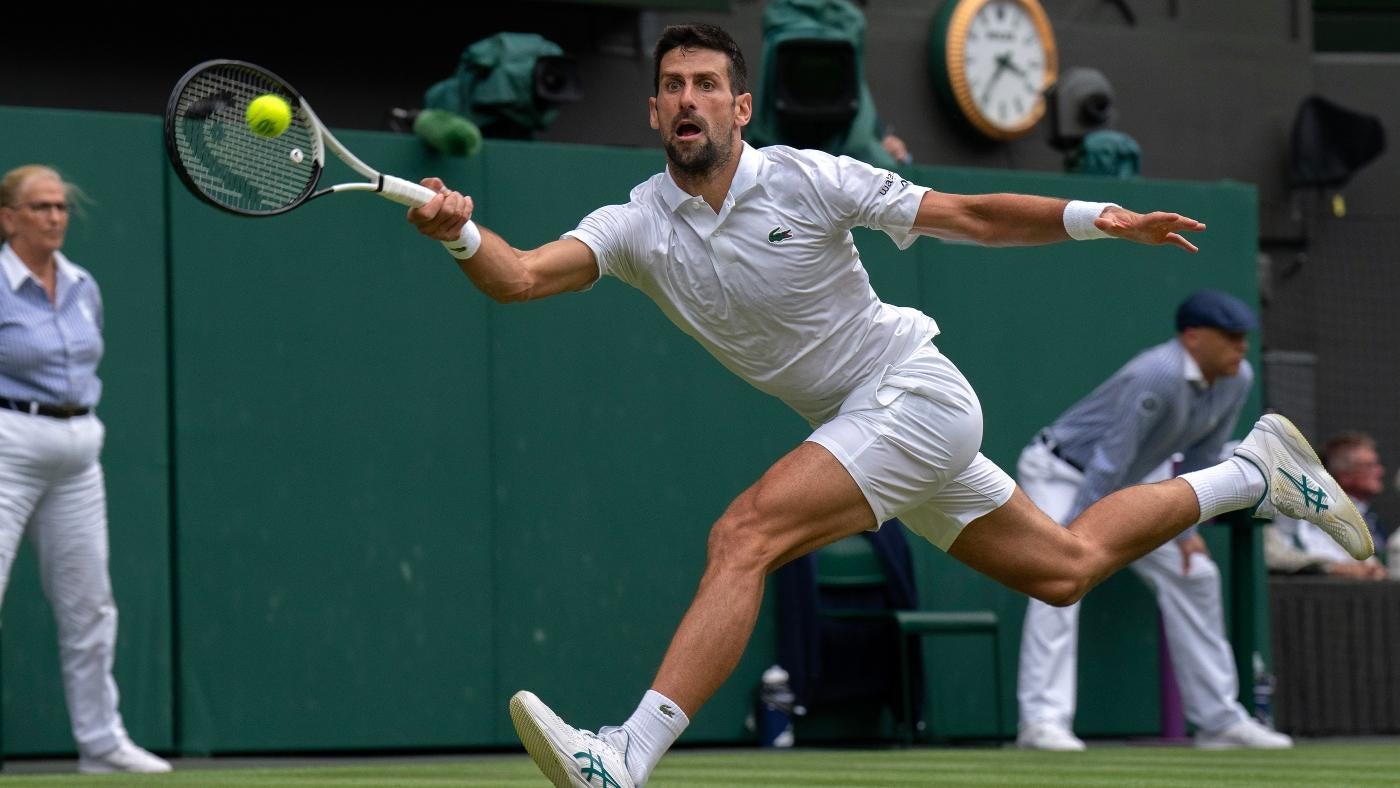USA soccer coach Gregg Berhalter believes he’s still the right manager for USMNT after Copa America debacle
Written by CBS SPORTS ALL RIGHTS RESERVED on July 2, 2024
U.S. men’s national team head coach Gregg Berhalter believes he is still the right person to lead the squad after their surprise group stage exit from the Copa America, which was sealed with a 1-0 loss to Uruguay on Monday. It marked the second loss of the group stage for the USMNT, who finished in third place with three points. Uruguay topped Group C with a perfect nine points out of nine, while Panama finished in second with six points, three of which came in their 2-1 win over the U.S. last Thursday.
The U.S.’ failure to live up to expectations means there’s renewed pressure for U.S. Soccer to part ways with Berhalter and led to a point-blank question about whether he is still the right fit for the job. The head coach offered a simple response to the question in his post-match press conference: “Yes.”
Berhalter admitted that the team underperformed considerably at the Copa America but chalked their early exit down to a few moments rather than an overall issue with the team’s gameplan. He singled out the Panama game as where things all started to turn in the wrong direction for the USMNT. The team went down to 10 when Timothy Weah picked up a red card in the 18th minute and the defeat meant that the U.S. needed to at least match Panama’s result on Monday and had to do so against the group’s top team in Uruguay.
The CBS Sports Golazo Network presents Call It What You Want, a weekly podcast where Jimmy Conrad, Charlie Davies, Brian McBride and Tony Meola cover all things USMNT and the state of the beautiful game in the United States.
“Obviously, the loss against Panama really hurt and I think when you talk about being, 80th minute, in a good position to get a draw and get something out of the game, we didn’t get it,” he noted, time-stamping a point shortly before Panama scored the game-winner. “When you look at that moment specifically, there’s some issues there. I think in that game in particular, a low block defending, needed to improve in that moment.”
Berhalter, now in his fifth year as the head coach, also suggested the team needed to learn how to manage big tournaments better. Many had circled the Group C finale against Uruguay as the toughest match on the U.S.’ calendar, but it was clear that the hosts could not live up to their potential even in statistical mismatches against Panama and Bolivia.
“We’re going to do a review of the whole tournament and see where we fell short,” Berhalter said. “The margins are so small and there’s very little separating any of these teams and you have to treat every game as the same. When you see the effort tonight that we put in, it’s incredible. The guys did a great job. They worked extremely hard, put in a great effort against a really good team but that needs to be the standard every time we step onto the field. That needs to be the same effort so we’ll look at everything. I think we’re not going to leave any stone unturned.”
Though this version of the USMNT is still fairly young — just three players on the roster are 30 and older — there is little reason to imply they lack big tournament experience. A majority of the Copa America roster competed at the 2022 World Cup, a tournament in which they launched themselves as a team on the rise. A year and a half removed from Qatar, though, many will argue they have not progressed much since.
Berhalter, naturally, is not in that camp.
“Defensively, we’re a very good team,” he said. “Most games, we have higher expected goals than the opponent. We create chances, we move the ball well. To me, the whole thing is, you want to keep moving the team forward and I feel like we have. You think about the depth of the squad, the number of players that have played in games, so there’s certainly improvement and we need to keep going. In my opinion, it’s not something you say, ‘Okay, this program’s doomed.’ It’s not the case at all. It was a poor performance, we didn’t get the results we expected and we need to get better.”
Berhalter’s claim on expected goals is not exactly true — they have only outpaced their opponents in half of the 14 games they have played since he returned to the job last September. The only Copa America match they added to that list was their 2-0 win over Bolivia, but even then they were wasteful and failed to put some strong goalscoring chances in the back of the net.
The middle-of-the-road performance reflects poorly on the 2026 World Cup co-hosts, who hoped to use the Copa America as a measuring stick for their progress with the tournament on home soil rapidly approaching. Instead of sharpening their skills against the world’s top teams, though, they instead failed to prove their worth against a wide range of opponents. There might be more progress to make than they had originally anticipated, bringing the program to a crossroads for the first time in a long time.
U.S. Soccer’s statement teased as much, with the federation saying post-match that “our tournament performance fell short of our expectations. We must do better. We will be conducting a comprehensive review of our performance in Copa America and how best to improve the team and results as we look towards the 2026 World Cup.”
Though Berhalter made his case, he’s just as realistic as anyone else that the decision does not rest in his hands.
“That’s not up to me,” he admitted.

 KVSP
KVSP 





